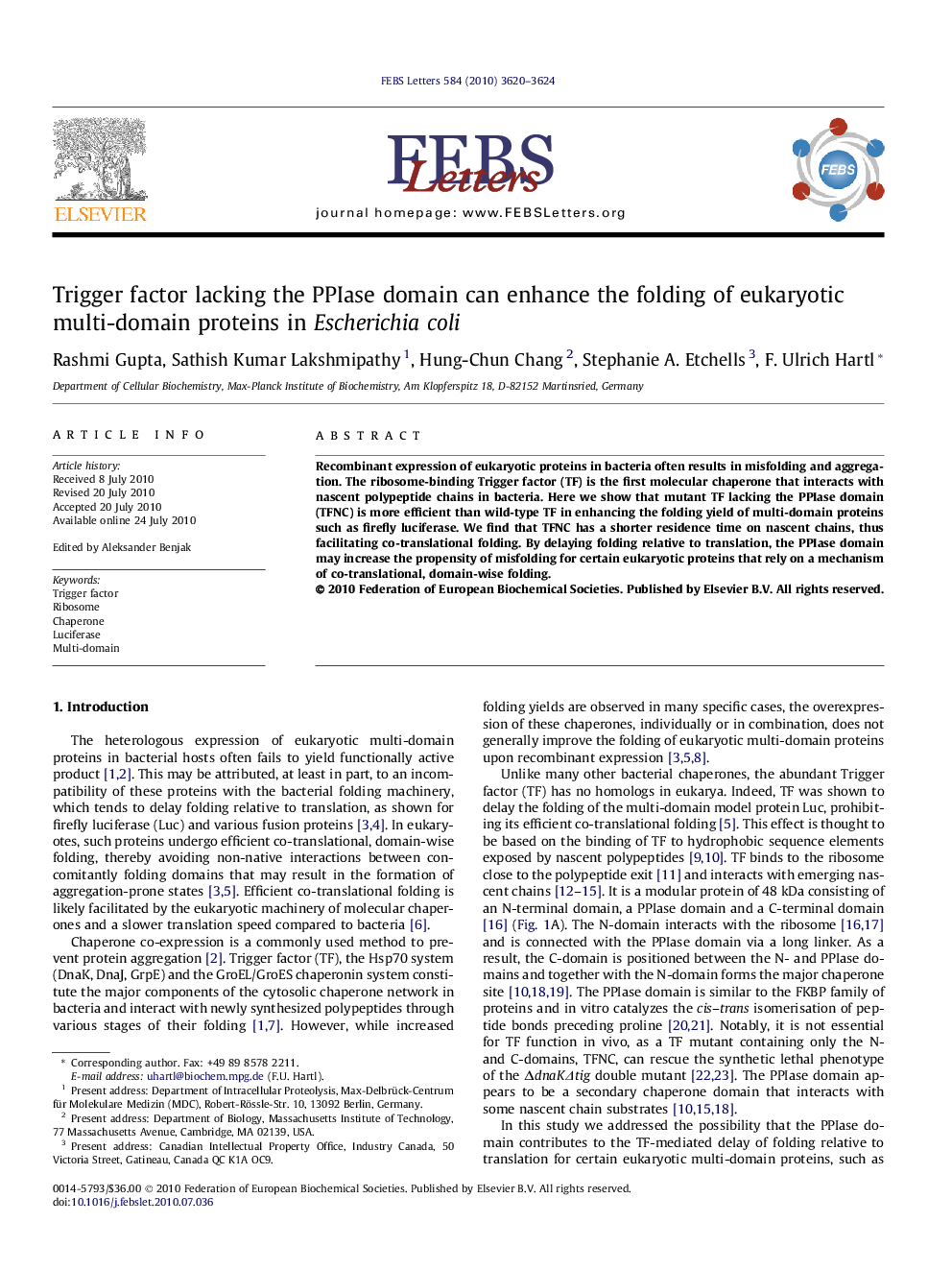| Article ID | Journal | Published Year | Pages | File Type |
|---|---|---|---|---|
| 2049534 | FEBS Letters | 2010 | 5 Pages |
Abstract
Recombinant expression of eukaryotic proteins in bacteria often results in misfolding and aggregation. The ribosome-binding Trigger factor (TF) is the first molecular chaperone that interacts with nascent polypeptide chains in bacteria. Here we show that mutant TF lacking the PPIase domain (TFNC) is more efficient than wild-type TF in enhancing the folding yield of multi-domain proteins such as firefly luciferase. We find that TFNC has a shorter residence time on nascent chains, thus facilitating co-translational folding. By delaying folding relative to translation, the PPIase domain may increase the propensity of misfolding for certain eukaryotic proteins that rely on a mechanism of co-translational, domain-wise folding.
Related Topics
Life Sciences
Agricultural and Biological Sciences
Plant Science
Authors
Rashmi Gupta, Sathish Kumar Lakshmipathy, Hung-Chun Chang, Stephanie A. Etchells, F. Ulrich Hartl,
